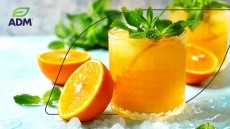Pipcorn sheds its artisanal, hipster image becoming a family, household snack brand

Pipcorn was founded by siblings, Jeff and Jen Martin, and Teresa Tsou, in 2012 who had $3,000 and the hipster-credentials of living in trendy Brooklyn to launch their business. For the first few years, they were hand stamping and packaging their own products and distributing their bags of mini heirloom popcorn on rented UHaul trucks.
"For the first six years we were only popcorn, but behind the scenes we were always testing new things, because we knew we wanted to launch more snacks," Jeff Martin told FoodNavigator-USA.
"We grew up eating cheeseballs that were not so healthy and full of artificial colors and flavors, and corn chips that would leave your hands so greasy," Martin said.
Roughly six years later, Pipcorn transformed their corn into extruded cheeseball puffs, and using a slightly different variety of corn from Mexico, launched its corn dippers. The company went through some great technical lengths to launch corn dippers, which involved cooking and steeping its corn for 12 hours and then grinding down the corn and employing some traditional tortilla production methods, Martin noted.
With the new snack launches, the company could now call itself of "family of snacks," said Martin.
Becoming a family brand
And while the brand was fond of its original, craft paper, hand-stamped bags, the founders knew if they wanted to become an accessible pantry staple, the company needed to refresh its packaging. Working with design agency Murmur Creative out of Portland, Oregon, Pipcorn launched its new packaging design featuring bolder, brighter colors.
"The idea of heirloom is something that’s passed down from generation to generation, and has some sort of value that’s worth keeping, but it’s not a young, new concept. We wanted to make a package that’s modern and really stands out on shelf," noted Martin.
Pipcorn corn dippers, cheeseballs, and popcorn are sold primarily in the natural channel through a nationwide distribution partnership with Whole Foods. Martin added that while Whole Foods has been a supportive retail partner of Pipcorn and that the natural channel is where the brand was able to justify a higher price point, the company is working to bring down its price point so that the brand can soon enter mass, conventional, and club channels.
The brand is reaching new audiences and is developing a loyal, repeat purchase following with parents of young kids.
"My wife Teresa (also a cofounder) and I have a two-and-half-year-old, and the way we think about snacking now is so different. We’ve noticed especially with the new packaging that we’re attracting a ton of young families. They're really loyal repeat customers that we love so much," Martin said.
Crackers coming soon
In April, Pipcorn will be launching triangular, snacking cracker made from the corn flour leftover from its cheeseball extrusion process.
"In the process of making our cheeseballs, we take our kernel and grind it down to a grit, and then we extrude it into a cheeseball. But in that process of grinding and extruding we’re left with all this really beautiful corn flour that you can’t turn into a cheeseball, it just clogs the machine up and doesn’t do anything. It’s a pretty common problem in the industry with extruded snacks," Martin said.
Instead of throwing the byproduct away, Pipcorn upcycled the ingredient to develop little triangular snacking crackers in cheddar, sea salt, and everything bagel flavors. Because of its close relationship with the retailer, Whole Foods will have an exclusive on two of the flavors when the line launches in a few months, according to Martin.
The launch is also a new category for the brand, as it will be stepping outside of the salty snacks aisle and into another center-store area.
"It's a new section of the store for us, we've never done a boxed item before. We’re looking forward to rallying around a different portion of the store," Martin said.





















